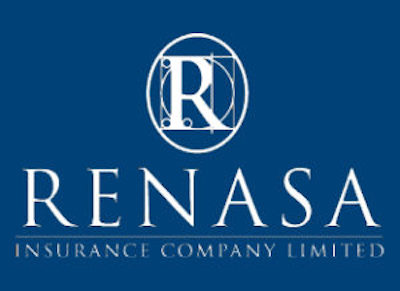

Global reinsurance company Swiss Re, hosted earlier this year in South Africa a webinar trilogy on the topic of sustainability, in collaboration with the Insurance Institute of Gauteng. The trilogy aimed to explore how the re/insurance industry contributes to achieving the sustainable development goals (SDGs) set by the United Nations, through dedicated products and solutions that tackle sustainability challenges.
We interviewed Carli Jacobs, Head of Property and Casualty Southern Africa at Swiss Re, to learn more about this.
The role of insurance industry in advancing UN sustainability agenda
Insurance has a key role to play in the sustainability of the world’s economies. The outbreak of COVID-19 and the severe impact of the pandemic has shown how now, more than ever, insurance is vital to the recovery of economies, institutions and people, as resilience is being threatened. According to the Swiss Re Institute-London School of Economics Macro Resilience Index, the global economy has less capacity today to absorb the impact of a shock event than it did in 2007.
The UN SDGs are the blueprint to achieve a better and more sustainable future for all by 2030. Designed to reconcile environmental protection with socioeconomic development, they serve as a basis for environmentally driven national development agendas.
Unfortunately, there are still many myths around sustainability goals that could hinder their accomplishment. First of all, it is important to note that sustainability is not just about climate change. Indeed the 17 goals set by the UN encompasses areas like zero hunger, gender equality, quality education and reduced inequality, as much as more climate related goals like affordable and clean energy, and life below water and on land. Another myth that needs to be debunked – especially in the corporate world – is the belief that prioritising sustainability mean a sacrifice of profitability. The contrary is actually true. Swiss Re observe really positive performance of investments taking into account Environmental, Social and Governance (ESG) criteria.
Sustainability is not just a Corporate Social Responsibility (CSR) topic and the re/insurance industry is very mindful of that. That is why signatories of the UN Principles for Sustainable Insurance are developing a set of insurance specific SDGs – named iSDGs – which focus on products and solutions that tackle societies sustainability challenges. The UN PSI run iSDG initiative is a call to action for the re/insurance industry, to do more of what we do to support sustainable development. By pursuing these goals the re/insurance industry will be able to better design products and solutions that address sustainability challenges.
Swiss Re’s commitment to sustainability
Swiss Re has a long-standing commitment to being a responsible company. In our understanding, a guiding principle of acting responsibly is to take a long-term view and play our part in enabling sustainable progress, to the benefit of our clients and society at large. Our mission is to embed sustainability into every aspect of our business. Indeed, Swiss Re has been reporting on the key SDGs since their launch in 2015. Now we have taken that a step further and we are using the SDGs as a lens to evaluate our existing books of business. The goal being to embed that lens into underwriting portfolio steering process and identify what the key risks are that we want to manage as well as key opportunities we want to drive.
Climate change warrants special attention because it is so pervasive and its impact widespread. By addressing the risks that climate change poses, we are ensuring sustainability on many, varied fronts.
To emphasize this commitment, we have recently introduced a triple-digit internal carbon levy aimed to accelerate the transition to net-zero emissions in operations by 2030. Swiss Re is the first multinational company to announce a triple-digit real carbon levy on both direct and indirect operational emissions (such as business travel).
Furthermore, Swiss Re is tacking concrete actions to decarbonise its business model. Along with net-zero emissions of our own operations by 2030, we have committed to net-zero emissions by 2050 on the asset (investment) and liability (underwriting) side. We apply a sustainability lens to our underwriting helping to steer our portfolio and identify any risks, but more importantly, opportunities. We have five focus priorities: Health, Nat Cat Protection Gap (where we can make insurance more accessible), Food Security, Sustainable Energy and Infrastructure.
We are also active in renewable energy re/insurance and are the lead market for offshore wind risks. In addition, we have made a commitment to the United Nations to advise up to 50 sovereigns and sub-sovereigns on climate risk resilience and to offer them USD10 billion against this risk by end of the year.
The aggregate impact of all of this is substantial. At the end of last year, Swiss Re estimated that closing the protection gaps for the three risk areas – natural catastrophes, mortality and healthcare – would increase average expected claims payments to cover insured events by more than USD 1 trillion per year, thereby improving societal financial resilience, and representing a huge potential new business area for the industry.




